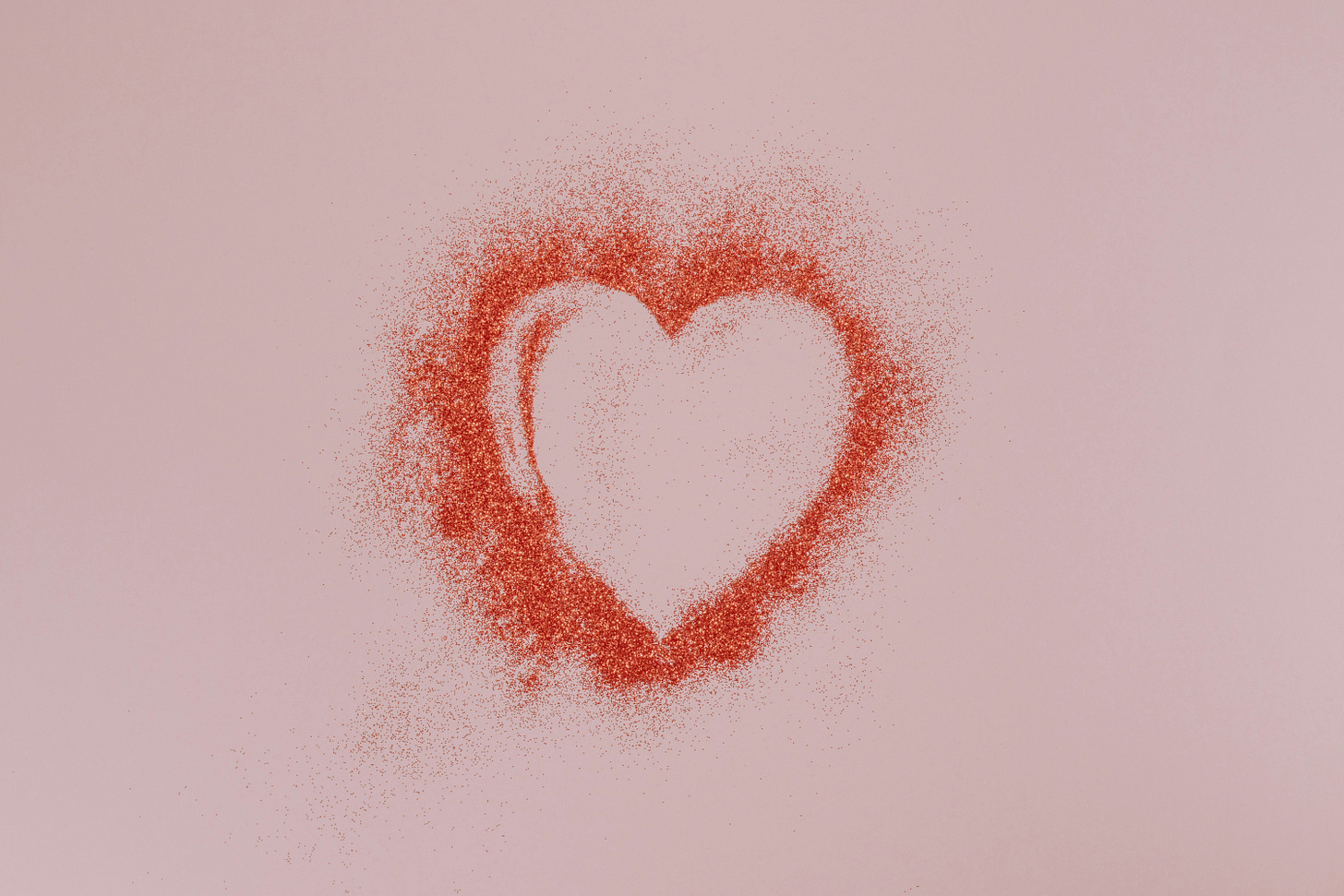
Tomorrow is my Grandma’s birthday. There is so much of her in me. As I remember her today, I can’t help but think of all of her family who were parts of the pieces of my story—in becoming me.
Grandma, born in Europe, was a mere child when she came to America. She brought with her the traumas of the past, but we didn’t speak about it. Grandma always had a smile, in fact I called her “My Happy Face”. There seemed to be a determination in the family to rebuild, restore and regrow the roots of the family in strong and bold way.
Grandma’s kitchen was bright red—a bold choice for such an understated woman. The small space was the heart of the home. A modest table pressed against the wall offered room for just three seats. The seat against the back wall was always mine, closest to the “Oreo jar.”
By the window sat a small red step stool, perfectly placed for a child to climb up and peer outside—or sneak a cookie when Grandma wasn’t looking.
Above my seat hung two pictures of birds—birds I grew to love through a story Grandma once shared.
Only Grandma cooked in that kitchen. But it was just wide enough for two people to stand together and hug. I loved hugging her. Even now, I can almost smell the chicken soup bubbling on the stove, mingled with her musk perfume—an intoxicating blend that, to me, smelled exactly like love.
My Bubbie wasn’t Grandma’s mother—her own mother died shortly after arriving from Europe. But Bubbie was Papa’s wife and the only great-grandmother I ever knew. She was soft, round, and overflowing with love.
Bubbie and Papa lived in that apartment before Grandma. After Bubbie passed away and Papa moved into assisted living, Grandma took over the space. Maybe she painted the kitchen red to make it her own.
Papa was both the cook and the carpenter. For such a tiny man, I always found it funny that the cabinets he built were so high up.
I’d often race up the three flights of stairs to his apartment, knowing two things awaited me: a hearty hug and the magic of watching him saunter to the closet, pull out the seltzer bottle, and craft the perfect egg cream—like only Papa could.
Papa, my great-grandfather, had done all the carpentry in the building. He owned the entire building long before it became Grandma’s. Their apartment was on the top floor. He was a tiny man, maybe five-foot-two, and Bubbie was small and wide, always with a broad smile and ready hug.
I don’t remember the kitchen being red when they lived there. But most of my memories in that home are colored with love. And that color is red.
Visiting Papa and Bubbie felt like returning to something sacred. It felt like the parts of me that mattered most were safe, nurtured, and known there.
When I was little, maybe three years old, Papa took me to shul with him (that’s synagogue). My tiny Papa felt like a giant—strong and tall, with a deep, booming voice. He dressed like many men in Boro Park, Brooklyn’s religious neighborhood: dark trousers, a suit jacket, a kippah, and over that, a proper hat.
He reached into his pocket and pulled out a silver pocket watch—a family treasure passed down from his father, now long gone.
He spoke with a thick Romanian accent, his English broken but tender.“Tatty. We walk fasta. We cannot be late for morning prayers. Come. Come now. Let me hold you. I hold you, my tatty.”
My arms reached up, and he scooped me into his embrace. We walked down the street together, and I smiled the whole way.
Time is what we make of it—how we use it, how we remember it.
We were in a hurry that morning. Papa didn’t want to be late. But looking back through the eyes of a child, time stood still. That single, fleeting moment—his hand in mine, his voice, his presence—left an imprint that would shape me for life.
It was hurried then. It is eternal now.
A few moments later, we arrived at the tiniest of shuls. Above the door was a Star of David. Inside, a sea of red velvet filled the room—on the pews, the floors, even the Torah cover. Papa set me down, and I ran my fingers across the soft velvet as the men gathered for prayer.
Papa pulled out his watch again.“Prayers begin in five minutes. You need to be a good girl while we pray. Do you promise?” “Yes, Papa. I promise.” He tapped his hand gently on my long cascading blonde hair. I shook my head acknowledging to him I will be good.
The men stood. I sat. And I listened. The prayers rose in a language I didn’t understand, but the cadence, the chanting, the rhythm—it wrapped around me like a warm blanket.
It felt ancient. It felt holy. It felt like love.
I looked at Papa and the other men as their bodies moved like little flames, flickering back and forth in rhythm with the prayers. In that moment, I imagined each of them as a glowing light—just like the candles Bubbie and Grandma gently lit every Friday night for Shabbos. Their quiet swaying reminded me of those flames: steady, sacred, and alive.
I waited patiently for Papa and the men to complete their prayers. While they swayed and chanted, I watched them in awe and said my own quiet prayer—the only way I knew how:
“Dear G-d, please make me good and kind like Papa.”
When prayers were finished, we gathered for challah and a drink–an opportunity for more prayers and gratitude.
Papa took my hand in his, and together we walked from shul back home, slowly with a sense of peace and calm.
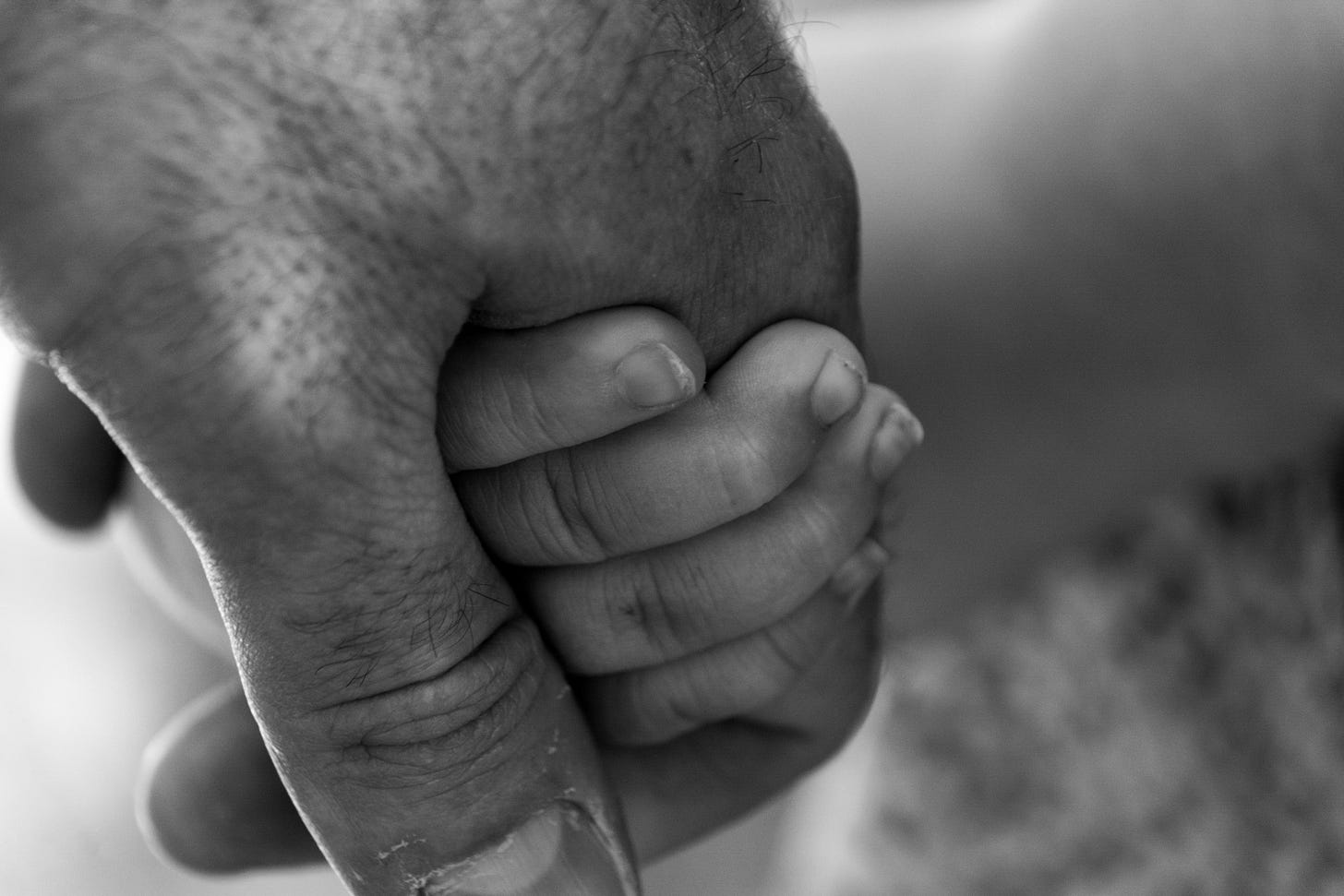
Thirty-two years later, I found myself walking into a synagogue with a large Star of David above the door—just like the one from my childhood. Inside, the sanctuary was draped in red velvet. The rabbi was a small man with a strong, booming voice.
A little girl sat beside me—my daughter. I leaned down and whispered, “Be a good girl. We need to be quiet and patient.”
She looked up at me with wide eyes and said, “I will be good, Momma.” I tapped her long cascading red curls in a way that felt familiar and loving.
Red—the powerful color Grandma once chose for her kitchen—was now the color I received in my child: powerful, strong, and radiant. A living thread through generations. What once painted the walls of my childhood now lived in the strands of my daughter.
There is challenge, trauma, choice, and responsibility in carrying the generations that came before us. If we choose to focus only on the trauma, we begin to live from that place—responding through pain and fear. But if we shift our lens toward the greater good—the resilience, the love, the legacy—we open ourselves to healing, strength, and deeper connection. What we choose to see shapes what we receive.
Papa made that choice.
He chose not to be defined by the trauma of the past, but to live forward—anchored in family, tradition, and purpose. He rarely spoke of the stories of murder or suffering. Instead, he instilled life, opportunity and purpose. He gave us Shabbos candles, red velvet pews, gentle prayers, and egg creams. And with them, came responsibility—not just to remember, but to rebuild. To repair the world around us. To make ourselves better. To carry the past with reverence, but not let it weigh down the future.
That’s when I realized—home isn’t necessarily a place. It’s the memories we carry, the love we pass on, and the sparks that become flames.
On that long-ago morning when Papa took me to shul, he gave me more than tradition—he gave me belonging. That spark he lit in me still burns.
Papa is as much my home as any physical space ever could be.
And red will always be the color of love.
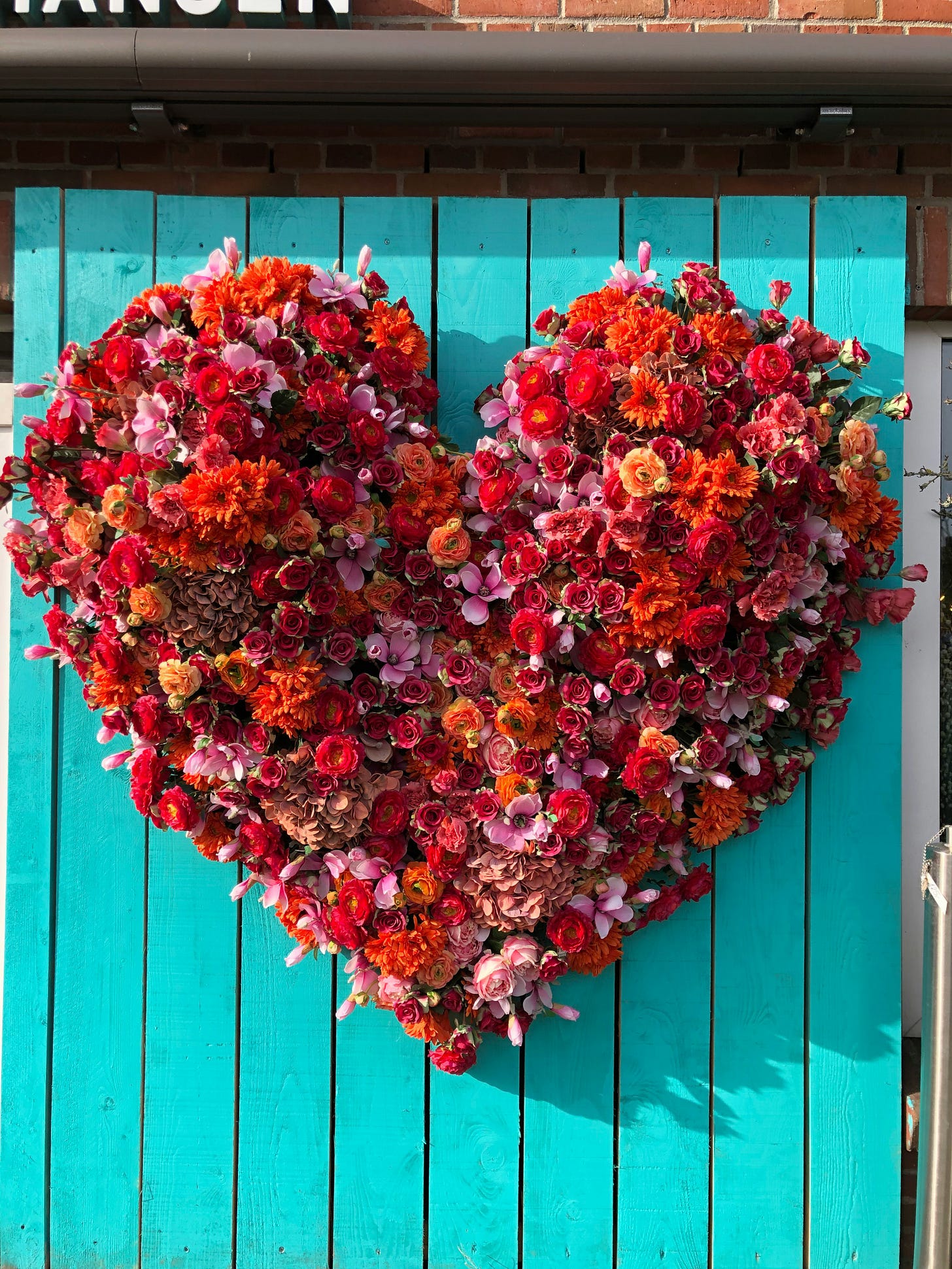
My Dear Sweet and Loving Papa,
I know you are with me always. I carry the flame of Yiddishkeit within me—the spark you helped kindle into a steady, burning light.
I do my best to live with purpose, to be my best, and to create a loving environment in the world around me.
Your memory and your legacy live on—in my heart, in my soul, and in the way I choose to walk through this life.
With Love and Gratitude,
Chellie




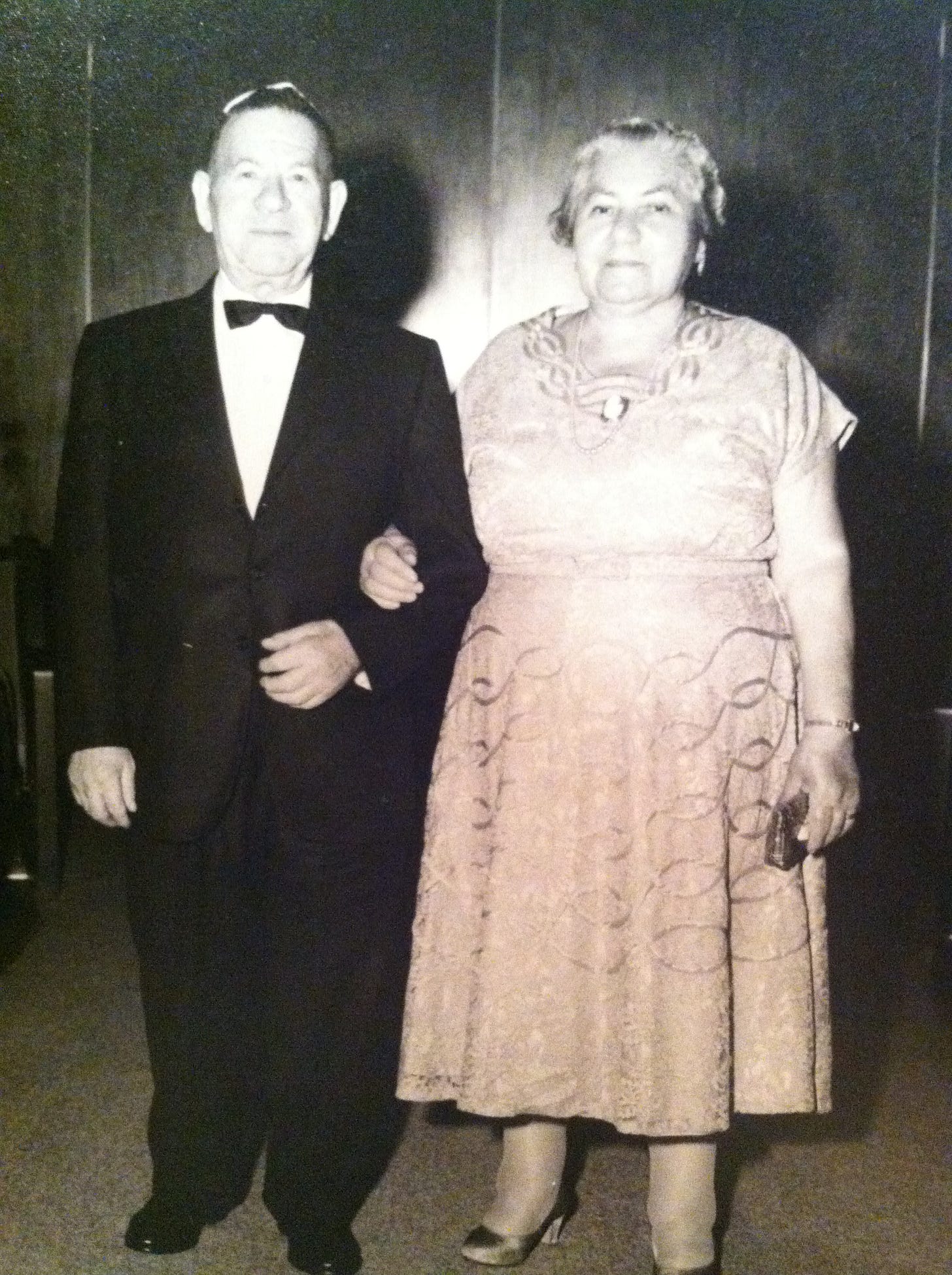
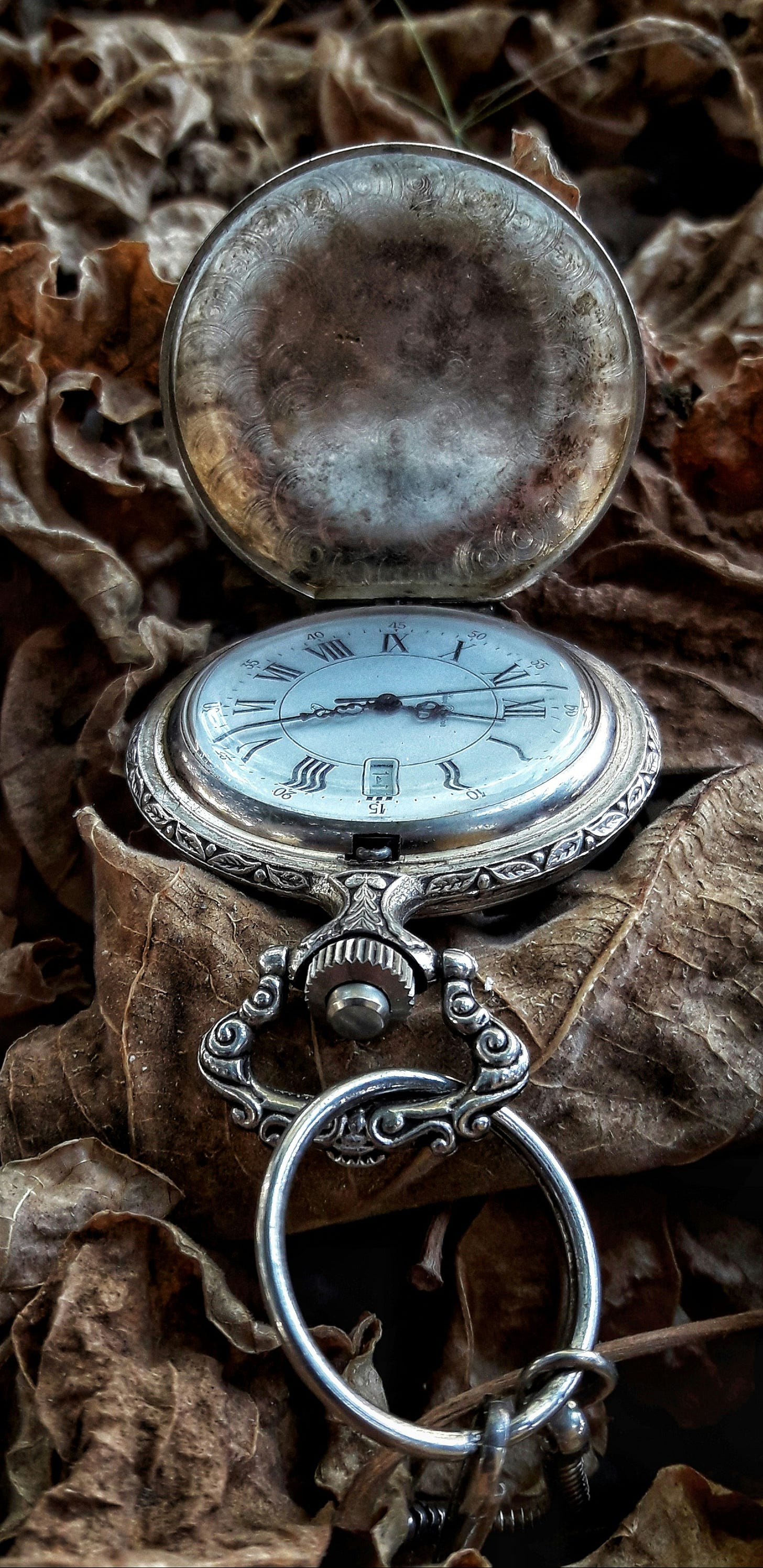
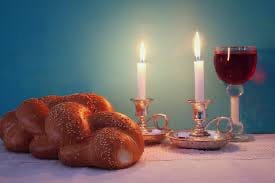
Chellie,
Great review - so well written and personal. I can feel the pride and warmth in your words. So many childhood memories for all of us - but the way you describe this particular one is very special! Thank you for sharing! Sending you a big hug!
Beautifully written from the heart